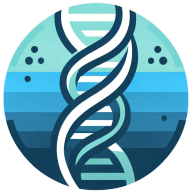3 Ethical Issues in Gene Expression Data and How to Address Them
Navigating the complex ethical terrain of gene expression data requires more than just scientific acumen; it demands a deep understanding of privacy, family implications, and data security. This article distills expert insights to shed light on the pressing ethical issues at the heart of genomics research. Discover actionable strategies to address these challenges and safeguard the integrity of gene expression studies.
- Protect Privacy in Gene Expression Research
- Consider Family Impact of Genomic Data
- Secure Sensitive Gene Expression Information
Protect Privacy in Gene Expression Research
One critical ethical consideration when working with gene expression data, especially in the context of human health, is data privacy and participant consent. With the rise of high-throughput technologies such as RNA-seq and single-cell transcriptomics, researchers now have access to deeply granular datasets that, while anonymized, can sometimes be re-identified when combined with other omics data or metadata. This poses a risk not only to participant confidentiality but also to public trust in scientific research.
As someone who has spent over a decade in translational research spanning vaccine immunology to cancer biology, I've realized that the ethical responsibility does not end at Institutional Review Board approval or data de-identification. It extends to how we store, share, analyze, and even publish gene expression data. Researchers must continuously ask: Can this dataset, when intersected with other publicly available data, inadvertently lead to the re-identification of an individual? Are we transparent with participants about how their data will be used in current and future studies?
In my research on pediatric obesity and cancer, we routinely handle sensitive gene expression profiles from patient-derived blood samples and tissues. These datasets carry not just scientific value but a profound ethical responsibility. I often remind my team that each data point represents a human story, an individual or child who entrusted us with their biology for the promise of better health for all.
To address these concerns, several strategies must be implemented:
1. Participants should be clearly informed about how their gene expression data will be stored, shared, and used, including the potential for secondary research.
2. Sensitive datasets should be deposited in repositories that require data access agreements, ensuring that only qualified researchers with sound ethical approvals can access them.
3. Teams working with human gene expression data should receive regular training in bioethics, data governance, and responsible data sharing.
Finally, we must adopt a culture where ethical vigilance is seen not as a regulatory burden but as a cornerstone of scientific integrity. In an era where genomic data will increasingly intersect with AI, digital health, and personalized medicine, ethically conscious research practices are not just advisable but indispensable.

Consider Family Impact of Genomic Data
Genomic data sharing and consent typically focus on the donor, but it's important to also consider the potential impacts on their family members. The informed consent process should acknowledge that the donor's genetic data may have implications for their relatives. This could involve discussions about how the data might be used to inform family members of any health risks or whether they will be notified in the event of significant findings. Family members may have the right to be informed if genetic data reveals something that could affect their health, but they also have the right not to be notified about potentially distressing or life-changing information. Ethical research practices must strike a balance between these rights and establish clear guidelines for what constitutes "actionable" findings and how these should be communicated.
How to address these concerns:
- Explicit family discussion in consent forms: The consent process should explain how genetic data could have implications for family members, and whether and how the family will be notified if relevant findings arise. This may include offering the option for the participant to consent to family members being contacted in certain circumstances.
- Confidentiality and data sharing guidelines: While genetic data may have family-wide implications, researchers need to maintain confidentiality at the individual level. Data sharing should be handled carefully, ensuring that genetic information is not disclosed inappropriately to family members or others without clear consent.
- Genetic counselling: When genetic data has potential implications for family members, providing genetic counselling services before and after participation can help explain the risks and benefits to both the donor and their family. This counselling can guide participants on how to discuss any potential findings with their family members.
Incorporating family considerations into the genetic data consent process helps ensure researchers approach studies with a thorough understanding of the wider implications for individuals and their relatives, balancing personal autonomy with the potential health risks of the family.
(Note: There is an article in the Journal of Medical Genetics that you may wish to reference: https://bsgm.org.uk/healthcare-professionals/confidentiality-and-genetic-information/)
Secure Sensitive Gene Expression Information
When working with gene expression data, one pivotal ethical consideration is privacy and confidentiality. As gene expression profiles can reveal highly sensitive information about an individual's health status and potential predispositions to various diseases, keeping this data secure is crucial. Unauthorized access to such details could lead to discrimination in employment, insurance, and more, which echoes concerns similar to those raised with genetic testing.
To address these ethical concerns, stringent data protection measures must be implemented. This involves encrypting the data to protect it from unauthorized access and ensuring that all data usage follows strict ethical guidelines approved by institutional review boards. Anonymizing the data to obscure any identifiers associated with the individual can further secure privacy. Additionally, it is essential for researchers to obtain informed consent from all participants, clearly explaining how their data will be used and the measures in place to protect their privacy. Through these steps, we uphold the ethical standards necessary for conducting gene expression research responsibly, ensuring that innovation in this exciting field progresses without compromising individual rights or privacy.


